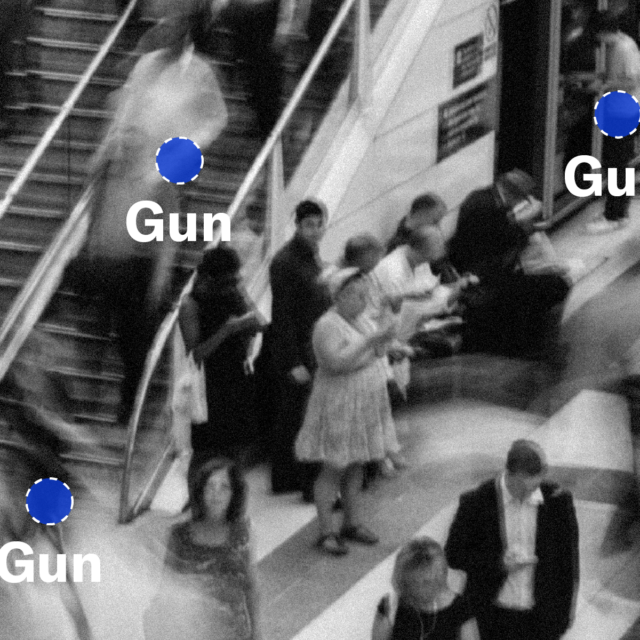The federal Bureau of Alcohol, Tobacco, Firearms and Explosives (ATF) announced a final rulemaking that would end the proliferation of untraceable ghost guns by clarifying that their core building blocks are firearms under the law—ensuring they are traceable and that licensed dealers conduct a background check before their sale. The rulemaking was first proposed in May 2021 as part of a slate of lifesaving executive actions announced by President Joe Biden to address the nation’s gun violence crisis.
Ghost guns are do-it-yourself guns made from readily available, untraceable building blocks.
- Ghost guns are very easy to make: their core building blocks (nearly-complete frames or receivers) can be bought online or at a gun show and are designed and marketed to be easily converted into a fully functional firearm with little skill.
- Ghost guns are the fastest-growing gun safety problem facing our country and have emerged as a weapon of choice for violent criminals, gun traffickers, dangerous extremists, and other people legally prohibited from buying firearms. Ghost guns are also the thread connecting a recent increase in gunfire on school grounds. Schools in Arizona, New Mexico, Maryland, and Kansas have been devastated by school shootings involving ghost guns – highlighting a scary trend and another important reason to regulate these dangerous weapons.
This final rule would shutter many of the ghost gun companies that flooded the market with untraceable ghost guns intentionally designed to evade regulation.
- Everytown’s research has revealed over 100 companies selling ghost gun parts online. And despite years of headlines making clear that ghost guns were being bought and used by mass shooters, extremists, and children, ghost gun companies continue to sell untraceable ghost gun kits and parts online with no questions asked.
- This rule corrects ATF’s previous interpretation of federal law to ensure that these companies can no longer evade regulation. Under federal law, the definition of “firearm” includes both operable weapons and the core building block of a weapon—the frame of a handgun or the receiver of a long gun. The law also covers nearly-complete weapons and kits that can readily be converted into an operable firearm or an operable frame or receiver.
- ATF had previously taken the position that certain frames and receivers do not qualify as firearms, even if they only require a minimal amount of drilling or milling to “finish” them. The rulemaking cures this flawed interpretation by clarifying that nearly-complete frames and receivers are firearms if they can be easily turned into one and by revoking ATF’s prior flawed determination letters.
- This rule also confirms that all-in-one ghost gun kits are “firearms” under federal law and it codifies a list of factors that courts have used to determine if a core building block may be “readily” converted into an operable firearm, ensuring that nearly-complete frames and receivers, such as 80% receivers, are regulated as firearms under federal law.
When the rule goes into effect in August, ghost gun sellers will be required to abide by the same rules and regulations as any other gun seller
- Under the rule, manufacturers and dealers of ghost gun building blocks must be federally licensed, the building blocks marked with serial numbers, and purchasers must pass a background check before buying these parts from a licensed dealer.
- The rule does not ban the possession of ghost guns altogether. People who already own ghost guns can still have them, so long as they aren’t legally prohibited from owning guns. But any dealers that have ghost guns in their inventory must serialize them, as well as any unserialized ghost guns they acquire in the future.
- 10 states and D.C. already have laws on the books regulating ghost guns, and several of those laws go further than this rule by banning the possession of ghost guns. But states on their own are unable to cut off the national supply chain for ghost guns, which this rule will finally do.
The rule does not infringe on Second Amendment rights, nor does it prevent hobbyists from building their own guns.
- Every federal court to have considered a Second Amendment challenge to a state or local ghost guns regulation has rejected it. Federal courts agree that there is also no Second Amendment right to an unserialized gun or a gun purchased without a background check. Further, companies have no Second Amendment right to sell unserialized guns.
- Nearly-complete frames and receivers and ghost gun kits are intentionally designed and marketed to require as little technical expertise, time, and effort as possible to assemble, unlike home-built firearms made by gunsmiths and hobbyists. Hobbyists can still acquire nearly complete frames and receivers to build a firearm, the only difference is that the parts will be serialized and companies will do a background check.
The call for action on ghost guns has grown significantly in the past couple of years and Everytown has been at the forefront of the fight.
2019
-
December 2019
Everytown files a petition for rulemaking, urging ATF to address the growing menace of ghost guns.
2020
-
May 2020
Everytown releases groundbreaking original research on ghost guns, including an analysis of more than 100 federal prosecutions involving ghost guns that showed ghost guns are connected to violent criminal enterprises, gun trafficking rings, and far-right extremists. -
August 2020
In the first lawsuit over the regulatory failure on ghost guns, Everytown and four cities (Columbia, Syracuse, Chicago, and San Jose) sue ATF over its failure to act on the threat posed by ghost guns and to correct its misinterpretation of federal law. Everytown Law represents the cities in the ongoing suit, which has been on hold pending the ATF’s final rule and seeks a court order overturning prior erroneous determinations and compelling the ATF to take action. -
December 2020
As part of a roadmap outlining ways the Biden-Harris Administration can protect the public from gun violence, Everytown urges the Administration to act on the threat of ghost guns. -
December 2020
Everytown sues a website selling ghost guns kits and parts on behalf of Mia Tretta, who was wounded with a ghost gun in the 2019 shooting at Saugus High School in Santa Clarita, California.
2021
-
February 2021
With Everytown serving as co-counsel, Los Angeles City Attorney Mike Feuer sues Polymer80 on behalf of the people of California, noting that over 700 of the ghost guns LAPD recovered in 2020 were made from Polymer80 parts. -
May 2021
Nick Suplina, Everytown’s senior vice president for law and policy, testifies before a U.S. Senate subcommittee on the threat posed by ghost guns. -
August 2021
Everytown files a comment letter in support of the proposed rulemaking. Everytown and Moms Demand Action drive nearly 100,000 comments in support of ATF’s proposed ghost guns rule. -
August 2021
Everytown sues Polymer80 on behalf of two L.A. county sheriff’s deputies wounded in a 2020 ghost gun shooting.
2022
-
April 2022
Everytown ran digital ads on the home pages of The Washington Post and The Wall Street Journal calling on the ATF to finalize the proposed ghost gun rule.
Learn More:
Everytown Research & Policy is a program of Everytown for Gun Safety Support Fund, an independent, non-partisan organization dedicated to understanding and reducing gun violence. Everytown Research & Policy works to do so by conducting methodologically rigorous research, supporting evidence-based policies, and communicating this knowledge to the American public.



